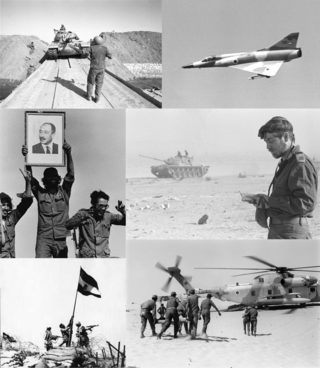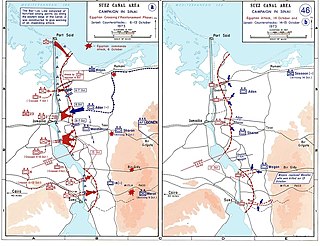| |||||
| Decades: | |||||
|---|---|---|---|---|---|
| See also: | |||||
Events in the year 1973 in Israel .
| |||||
| Decades: | |||||
|---|---|---|---|---|---|
| See also: | |||||
Events in the year 1973 in Israel .
| | This section needs expansion. You can help by adding to it. (August 2010) |
Post-war:
The most prominent events related to the Israeli–Palestinian conflict which occurred during 1973 include:
Notable Palestinian militant operations against Israeli targets
| | This section needs expansion. You can help by adding to it. (August 2010) |
The most prominent Palestinian Arab terror attacks committed against Israelis during 1973 include:
Notable Israeli military operations against Palestinian militancy targets
| | This section needs expansion. You can help by adding to it. (December 2010) |
The most prominent Israeli military counter-terrorism operations (military campaigns and military operations) carried out against Palestinian militants during 1973 include:

| | This section is empty. You can help by adding to it. (August 2010) |

The Yom Kippur War, also known as the Ramadan War, the October War, the 1973 Arab–Israeli War, or the Fourth Arab–Israeli War, was an armed conflict fought from October 6 to 25, 1973 between Israel and a coalition of Arab states led by Egypt and Syria. The majority of combat between the two sides took place in the Sinai Peninsula and the Golan Heights—both of which were occupied by Israel in 1967—with some fighting in African Egypt and northern Israel. Egypt's initial objective in the war was to seize a foothold on the eastern bank of the Suez Canal and subsequently leverage these gains to negotiate the return of the rest of the Israeli-occupied Sinai Peninsula.

The War of Attrition involved fighting between Israel and Egypt, Jordan, the Palestine Liberation Organisation (PLO) and their allies from 1967 to 1970.
The history of the Israel Defense Forces (IDF) intertwines in its early stages with history of the Haganah.

David "Dado" Elazar was the ninth Chief of Staff of the Israel Defense Forces (IDF), serving in that capacity from 1972 to 1974. He was forced to resign in the aftermath of the Yom Kippur War.
Operation "Wrath of God", also known as Operation "Bayonet", was a covert operation directed by Mossad to assassinate individuals involved in the 1972 Munich massacre in which 11 members of the Israeli Olympic team were killed. The targets were members of the Palestinian armed militant group Black September and operatives of the Palestine Liberation Organization (PLO). Authorized by Israeli Prime Minister Golda Meir in the autumn of 1972, the operation is believed to have continued for over twenty years.
The Geneva Conference of 1973 was an attempt to negotiate a solution to the Arab–Israeli conflict as envisioned in United Nations Security Council Resolution 338 following the called-for cease-fire to end the Yom Kippur War. After considerable "shuttle diplomacy" negotiations by Henry Kissinger, the conference opened on 21 December 1973 under the auspices of the United Nations Secretary General, with the United States and the USSR as co-chairmen. The foreign ministers of Egypt, Jordan and Israel were in attendance. The table with Syria's nameplate remained unoccupied, although Syria had indicated possible future participation. Each foreign minister spoke, mainly directed to their domestic audiences rather than to each other. Kissinger articulated his step-by-step strategy and stated that the goal of the conference was peace; the immediate need was to strengthen the cease-fire by accomplishing a disengagement of forces as the "essential first step" toward implementation of UN 242. The meeting was then adjourned.
The Arab–Israeli conflict began in the 20th century, evolving from earlier Intercommunal violence in Mandatory Palestine. The conflict became a major international issue with the birth of Israel in 1948. The Arab–Israeli conflict has resulted in at least five major wars and a number of minor conflicts. It has also been the source of two major Palestinian uprisings (intifadas).

The Arab–Israeli conflict is an ongoing intercommunal phenomenon involving political tension, military conflicts, and other disputes between Arab countries and Israel, which escalated during the 20th century, but had mostly faded out by the early 21st century. The roots of the Arab–Israeli conflict have been attributed to the support by Arab League member countries for the Palestinians, a fellow League member, in the ongoing Israeli–Palestinian conflict; this in turn has been attributed to the simultaneous rise of Zionism and Arab nationalism towards the end of the 19th century, though the two national movements had not clashed until the 1920s.

The Battle of the Sinai was one of the most consequential battles of the Yom Kippur war. An Egyptian attacking force that advanced beyond their line of defense at the Bar-Lev Line was repulsed with heavy losses by Israeli forces. This prompted the Israelis to launch Operation Abiray-Lev the next day, penetrating the Egyptian line of defense and crossing the Suez Canal.
Events in the year 1985 in Israel.
Events in the year 1982 in Israel.
Events in the year 1978 in Israel.
Events in the year 1975 in Israel.
Events in the year 1974 in Israel.
Events in the year 1972 in Israel.
Events in the year 1969 in Israel.
The Schoenau ultimatum was a hostage-taking incident in Marchegg, Austria by the Palestinian militant group As-Sa'iqa in 1973. At the time Vienna was a transit point for Russian Jews, the largest population of Jews remaining in Europe. The Schoenau ultimatum focused attention away from Egyptian and Syrian military build-up and their planned attack that would come to be known as the Yom Kippur War.

This article deals with the history and development of tanks of the Israeli Army, from their first use after World War II in the establishment of the State of Israel after the end of the British Mandate, and into the Cold War and what today is considered the modern era.
The Arab–Israeli war normally refers to: